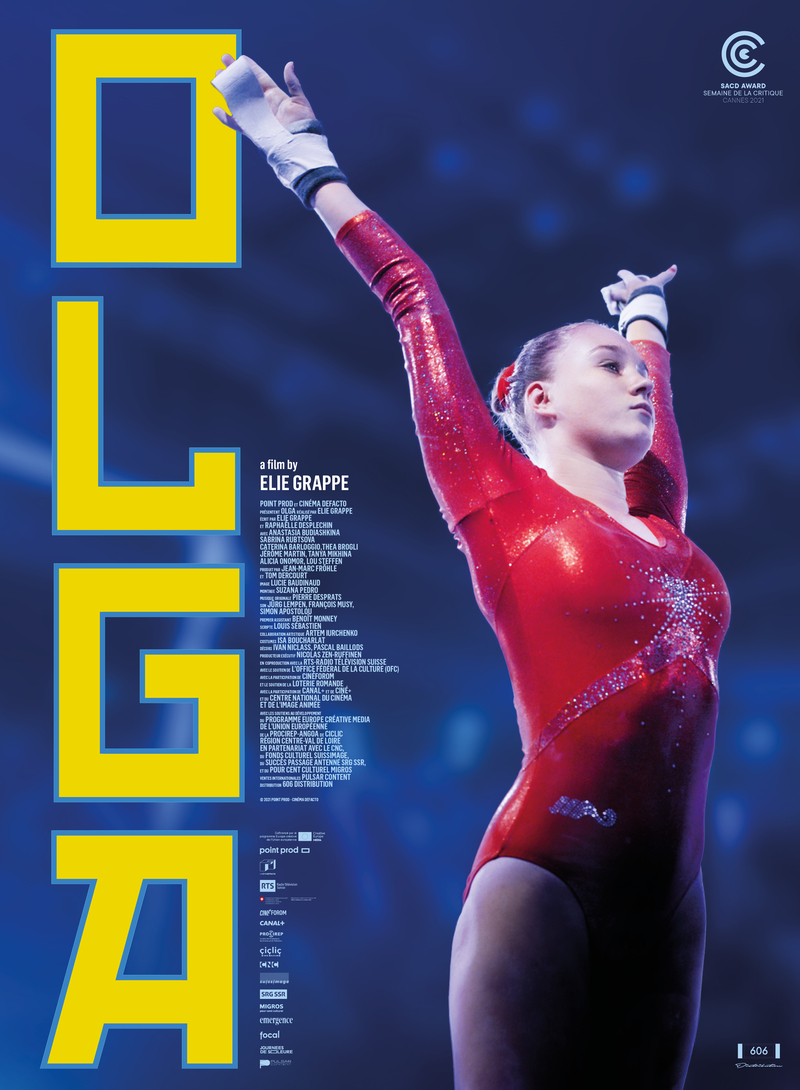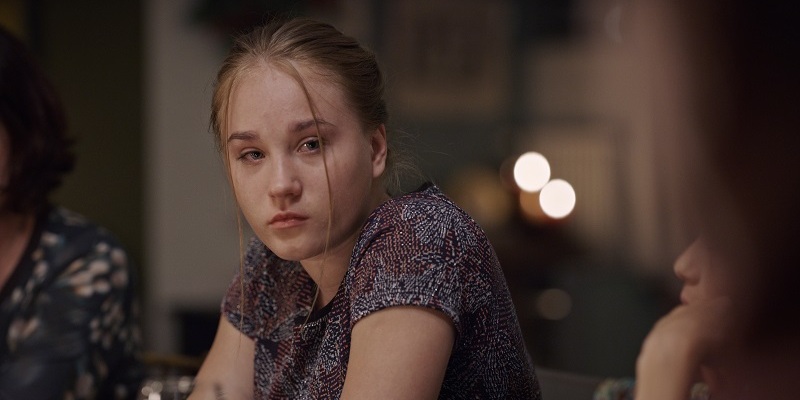
When her mother is targeted by the Ukrainian authorities, a gymnast is
sent to train for the Swiss national team.
Review by
Eric Hillis
Directed by: Elie Grappe
Starring: Anastasia Budiashkina, Sabrina Rubtsova, Caterina Barloggio, Théa Brogli, Stéphanie Chuat

Some sports don’t translate well to cinema. Football and tennis require
a rigid adherence to the 180 degree rule so as not to confuse the
audience. Gymnastics might be the sport that lends itself most easily to
a cinematic translation. Gymnasts don’t simply move in one direction,
rather they transition to keep things interesting, to further impress us
with their movements. This is what directors and editors do. With
Olga, director Elie Grappe and editor Suzana Pedro give us
the most cinematic depiction of gymnastics since Spike Jonze directed
Sofia Coppola in his video for the Chemical Brothers'
'Elektrobank'.

Olga opens with a sequence worthy of any Hollywood action
movie. Our titular 15-year-old protagonist (Anastasia Budiashkina) is being driven home from gymnastics practice by her mother when
their car is repeatedly slammed into by another vehicle, depicted only
by its blazing headlights. The pair manage to evade their attackers and
escape. Olga's mother is a journalist who has written disparagingly
about her government in Ukraine, and assumes this to be a deliberate
attack on her life by the regime. As Olga's deceased father was Swiss,
her mother takes the opportunity to pack off her daughter to the safety
of Switzerland, where she will try out for a place on the Swiss national
gymnastics team.
To do so will require Olga to meet various sporting and social
challenges. The biggest challenge she faces is whether or not to
renounce her Ukrainian citizenship and declare herself solely Swiss
(Ukraine doesn't allow for dual nationality). Olga's patriotic zeal is
stoked when she finds herself isolated and bullied by some of her new
Swiss teammates. Her homesickness is increased when the 2014 Maidan
protests break out and her mother is badly beaten by the police. Can
Olga put aside her personal turmoil, and that of her homeland, to fulfil
her dream, albeit by competing for a country she has no real kinship
with?

Were Olga made by, say Ken Loach, it would likely feature
a lot of people sitting around and arguing about politics. With his
feature debut, Grappe has taken a far more cinematic approach. The
politics of Ukraine are considerably complex, especially for a
15-year-old, and it's through those young eyes that we view that
nation's turmoil. When asked why she believes in the revolution, Olga
can't give any answer other than to back her mother's beliefs. She's
simply a teenager trying to make the most of her life, and at this point
politics are for adults to squabble over. Olga just hopes her mother
will be okay.
It's in the gymnastics scenes that Grappe really gets to show off his
impressive filmmaking chops. He uses his young heroine's physicality
rather than her words to express her state of mind, as Olga hurls
herself into her sport with a dangerous commitment. Olga's reluctance to
drop her heritage is embodied by her insistence on performing a
particular move she learned back home in defiance of her
instructors.

Much of the movie focusses on Olga training rather than competing, yet
the stakes never seem any lower. Watching Olga battling the bars late at
night in an empty gymnasium is as thrilling as the finale of any boxing
movie, thanks to the combination of Budiashkina's physicality, Grappe's
direction and Pedro's editing. All three combine to use a body in motion
to express the frustration of young people growing up in an uncertain
Eastern Europe. Add a few tunes and it might be the best musical of the
year.

Olga is in UK/ROI cinemas from
June 3rd.

